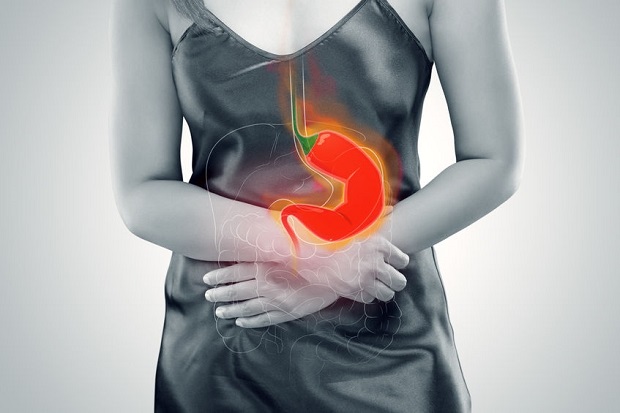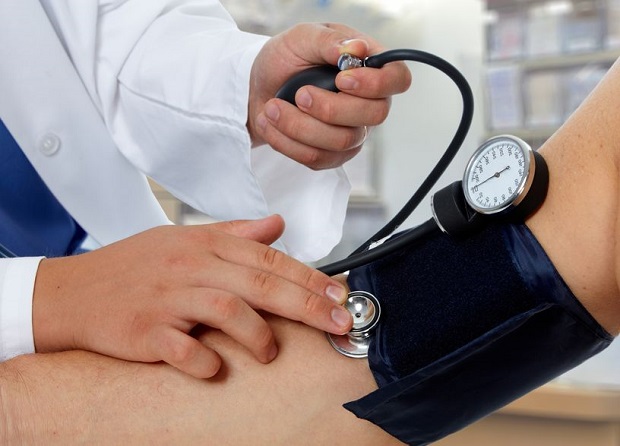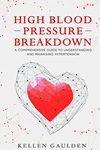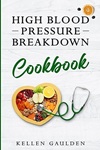
Can Acid Reflux Cause High Blood Pressure?
- Acid reflux does not cause high blood pressure.
- Acid reflux may be associated with low blood pressure.
- Heartburn associated with acid reflux is a common side effect of some high blood pressure medications.
- There are certain medical conditions, lifestyle habits, and traits that patients with acid reflux and high blood pressure have in common.
Jump Ahead
- Acid Reflux May Cause Low Blood Pressure
- Acid Reflux High Blood Pressure Connection
- Common Habits That May Associate Acid Reflux with High Blood Pressure
- Resources
Acid Reflux May Cause Low Blood Pressure
According to one study published in April 2008 in the Gastroenterology Journal, there is actually an inverse relationship between acid reflux and high blood pressure. The study found that patients who experienced daily symptoms of acid reflux have lower blood pressure than those with infrequent or no symptoms. The preliminary findings may be associated with the nitric oxide link between acid reflux and low pressure. [1]
Acid Reflux/High Blood Pressure Connection
Though your acid reflux may not be causing your high blood pressure, if you take certain medications, it could be your high blood pressure causing your acid reflux. [2] High blood pressure, or hypertension, occurs when blood is pumped more forcefully than normal through the arteries. The force exerted upon the arteries’ walls can cause damage over time. [3] Beta-blockers, also called beta-adrenergic antagonists, beta-adrenergic blocking agents, or beta-antagonists, block the effects of adrenaline, which causes the heart to beat more slowly and with less force, allowing blood to flow at normal pressure. [4]
Heartburn associated with acid reflux is a common side effect of beta-blockers.
Common Habits that May Associate Acid Reflux with High Blood Pressure
There are certain medical conditions, lifestyle habits, and traits that patients with acid reflux and high blood pressure have in common. For example, obesity is a risk factor for both conditions.
Alcohol Use: Having more than three drinks in one sitting can temporarily increase your blood pressure, and long-term use can lead to long-term increases. [5] Alcohol consumption may also increase symptoms of GERD. [6] The more you drink, the higher your risk for both conditions.
Being Overweight: Obesity is one of the major risk factors for both conditions. For high blood pressure, the more you weigh, the more blood your body requires forcing more pressure on the artery walls. For acid reflux, the higher your BMI, the more severe your symptoms. [7]
Family History. Both conditions tend to run in families. [8]
Medical Conditions. Certain medical conditions may increase the risk of both conditions, including pregnancy, diabetes, and sleep apnea. [9]
Stress. For acid reflux, stress may make symptoms worse. In hypertension, stress can lead to dramatic, short-term increases in blood pressure. [10]
Tobacco Use. In acid reflux, tobacco increases the production of stomach acid, reduces saliva production, irritates the esophagus, and may impair the function of the lower esophageal sphincter—the muscle responsible for blocking stomach acids from entering the esophagus. [11]
Tobacco immediately raises blood pressure and can damage the lining of the artery wall. [12]
References
- [1] Murray, Liam J; Inverse Association Between Gastroesophageal Reflux and Blood Pressure: Results of a Large Community Based Study BMC Gastroenterology; 2008; Volume: 8; Print.
- [2] US National Library of Medicine-National Institutes of Health – “Gastroesophageal Reflux Disease.”
- [3] National Heart, Blood, and Lung Institute – “What Is High Blood Pressure?“
- [4] Mayo Clinic – “Beta-Blockers.”
- [5] Mayo Clinic – “Alcohol: Does It Affect Blood Pressure?“
- [6] Chen, S., Wang, J., & Li, Y. (2010). Is alcohol consumption associated with gastroesophageal reflux disease? Journal of Zhejiang University SCIENCE B, 11(6), 423–428. https://doi.org/10.1631/jzus.b1000013
- [7] Mayo Clinic – “Obesity – Complications.“
- [8] Science Daily – “Mayo Clinic Researchers: Family History Identified As New Risk Factor for Heartburn.”
- [9]Beth Israel Deaconess Medical Center – “Risk Factors for Gastroesophageal Reflux Disease (GERD)/ Heartburn.”
- [10] University of Maryland Medical Center – “Gastroesophageal Reflux Disease.”
- [11] WebMD – “Heartburn Tobacco Connection.”
- [12] American Family Physician – “How Does Tabacco Affect High Blood Pressure?“
DISCLAIMER: THIS WEBSITE DOES NOT PROVIDE MEDICAL ADVICE
The information, including but not limited to text, graphics, images, and other material on this website, is for informational purposes only. No material on this site is intended to be a substitute for professional medical advice, diagnosis, or treatment. Always seek the advice of your physician or other qualified healthcare providers with any questions you may have regarding a medical condition or treatment before undertaking a new healthcare regimen, and never disregard professional medical advice or delay in seeking it because of something you have read on this or any other website.
Related Products
TUMS Chewy Bites Chewable Antacid Tablets for Ultra Strength Heartburn Relief
High Blood Pressure Breakdown: A comprehensive guide to understanding and managing hypertension.
High Blood Pressure Breakdown Cookbook: Season your life and your food. Savor Flavorful Recipes for a Healthy Heart and Lower Blood Pressure











